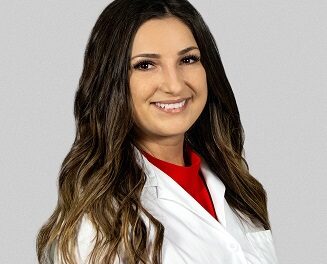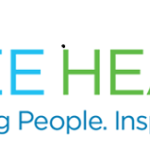The COVID-19 pandemic is stressful enough, but for children and adults with autism spectrum disorder (ASD) and their families, the crisis can be especially difficult.
 Adrien A. Eshraghi, M.D., M.Sc., professor of Otolaryngology, Neurological Surgery and Biomedical Engineering and Miller School coauthors published a new correspondence titled COVID-19: overcoming the challenges faced by individuals with autism and their families in The Lancet Psychiatry which address specific challenges patients with autism and their families might encounter during the pandemic, as well as what healthcare providers should know and do to ensure optimal and safe care.
Adrien A. Eshraghi, M.D., M.Sc., professor of Otolaryngology, Neurological Surgery and Biomedical Engineering and Miller School coauthors published a new correspondence titled COVID-19: overcoming the challenges faced by individuals with autism and their families in The Lancet Psychiatry which address specific challenges patients with autism and their families might encounter during the pandemic, as well as what healthcare providers should know and do to ensure optimal and safe care.Chances are good that providers caring for COVID-19 patients in all settings, including the emergency room (ER) and inpatient settings, will encounter adults and children with autism.
“In 2004, the prevalence of autism was 1 in 166. Today the Centers for Disease Control (CDC) estimates that 1 in 54 children are on the autism spectrum”, according to Dr. Eshraghi, who also is the director of the University of Miami Hearing Research and Communication Disorders Laboratory and co-director of the University of Miami Ear Institute.
People with autism are at higher risk for COVID-19 complications, according to the CDC, because they tend to have immune disorders and other comorbidities.
The process of isolating can be especially hard on children with autism and their families. The pandemic disrupts routine, which is problematic for these patients and caregivers. Patients might have difficulty comprehending the situation and expressing themselves, hyperactivity, and behavioral issues.
Because of all these multiple challenges which may be experienced at the same time in some instances, people with autism and their caregivers are likely experiencing heightened stress during this time.
If patients need medical care during the pandemic, the situation for patients and their families often becomes even more overwhelming, according to Dr. Eshraghi.
“The healthcare environment, especially in the emergency room, can be difficult and overstimulating for people with autism spectrum disorder possibly due of the crowd, sounds and lights,” Dr. Eshraghi said. “It’s important to reduce that stress. For example, caregivers are not allowed into many ER exam and hospital rooms during the pandemic. But in the case of autism, patients need their caregivers to help keep them be calm and facilitate communication with providers.”
Dr. Eshraghi recommends that ERs train staff to recognize the signs of autism and understand how to best manage these patients. Often, that means thinking out of the box.
“Another issue with people on the spectrum is that some don’t have a concept of having to wait for their turn, so they’re impatient when they have to wait. As well they may have sensory issues that don’t allow them to tolerate wearing a mask,” Dr. Eshraghi said.
Potential solutions include bringing the child and caregiver to wait in an exam room, rather than keeping them in the waiting room. If the patient keeps taking off his or her mask, provide parents with additional masks to keep the child, parents, and providers safe.
"Those with autism spectrum disorder are not just another vulnerable population in the context of COVID-19. While they may share similar needs with other vulnerable groups, some are in fact quite unique. We hope our commentary begins to provide a framework for strategic enhancement and investment in healthcare, therapy, education, and family support during future crises" said co-author Michael Alessandri, Ph.D., executive director of the University of Miami-Nova Southeastern University Center for Autism and Related Disabilities (CARD).
Other coauthors of the paper are: Daniel S. Messinger, Ph.D., professor and coordinator of the Developmental Psychology Program; Rahul Mittal, Ph.D., researcher; Crystal Li, medical student at Miller School of Medicine; Rebecca S. Eshraghi, Ph.D., researcher; and F. Daniel Armstrong, Ph.D., professor of pediatrics and senior associate dean for child health.


























